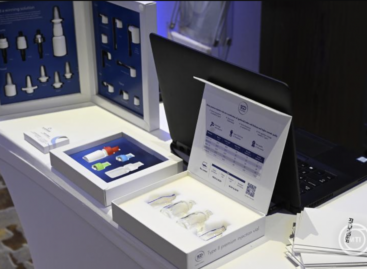Magazine: What was 2019 like for market players?
In 2019 Hungarian retail value sales were up 7 percent in comparison with 2018. The growth rate was just a little below last year’s level (7.7 percent), and the engine of growth was discount supermarkets, which produced a double-digit sales growth in 2019.
![]()

Michalis Christou
European CEO
RetailZoom
However, another segment also performed superbly: shops that belong to the ‘other or independent’ category. Probably the time has come not to categorise these as independent shops any more. Behind the double-digit sales growth we find shops that are organised into chains such as Privát, Eurofamily, Goods Market, Plus Market, Tom Market, Azúr, Manna ABC and many other smaller chains. These chains operate more than 2,000 stores in Hungary, in addition to the stores ran by the so-called Domestic Chains (Coop, CBA, Príma, Reál and national tobacco shops). If we calculate the performance of these two types together, what we see is that they managed to increase their market share: from 42 percent in 2018 to 43 percent in 2019.
Which factors contributed to the expansion of Domestic Chains?

Andreas Christou
MD
RetailZoom Hungary
First and foremost their coverage is very big, which means accessibility, proximity and constant presence to shoppers. Typically fresh product categories dominate shopping in these stores – meat, fruits and vegetables, followed by beer, salty snacks and sweets, and then come dairy products and bakery items. These stores offer a large selection of products. More than half of buying transactions (‘baskets’) have a value below HUF 1,000, with fewer than 4 products in the basket. Their contribution to the sales of Hungarian chains is only 15 percent. In the case of medium value purchases we can talk about an 8-percent numerical and a 23-percent value share, on average with 17 purchased products. High-value (above HUF 10,000) baskets – 3 percent of transactions fall into this category – make up for 21 percent of domestic chains’ value sales, with more than 40 items in the basket. There are many impulse buyers among Príma customers, the flagship product of Coop stores is meat, while in Reál stores sales of bakery items grew the fastest in 2019.
How can Domestic Chains improve their sales performance further?
Portfolio optimisation: it is key that cutting back their product selections shouldn’t entail customer loss. Action plans based on real data: thanks to the development of information technology, all kinds of shopper behaviour, product selection and promotion-related data can end up on the desks of decision-makers in easy-to-understand format. Using predictive analytic models: the goal is to take the necessary correctional steps before a problem occurs.
We must also talk about the special situation that the COVID-19 pandemic caused. Some of the changes that resulted from this can influence the market position of Domestic Chains in the long run. Basket sizes have increased dramatically – both the number of products and their sizes grew. Impulse and premium products are among the biggest losers of the quarantine situation. In the case of the former, the main reason is shoppers staying at home, while for the sales decline of the latter we can blame the fact that customers have become more cautious. The sales results of impulse products are likely to improve soon, but premium products will be facing hard times after the end of the pandemic too. //
The pandemic disturbed the classic demand/supply business model and transformed consumer behaviour. Because of this market players need to adopt new approaches: A new kind of thinking has become necessary. It is very likely that new-type shopping habits will stay with us for months to come. Product portfolio- and pricing strategy-related processes need to be re-evaluated. The price/value ratio will be very important for shoppers. Savings reduced and shopping budgets are now smaller than before. Private label product sales grew faster than the average in March-April. Innovative, new promotional models are born, as a reaction to the new-type shopping habits created by the pandemic period. Classic promotional leaflets will be less important, while the importance of communicating with shoppers on digital platforms will increase. //
Related news
EuroCIS 2025: Serious interest in the retail technology trade fair
Amazon and TikTok recently signed an agreement that will allow…
Read more >KSH: retail turnover exceeded the same period of the previous year by 3.6 percent and the previous month by 1.2 percent
In October, the volume of retail trade turnover exceeded the…
Read more >One of the main drivers of domestic retail is the pharmaceutical trade
The pharmaceutical industry is a very important industry in the…
Read more >Related news
On self-acceptance, self-liberation and the gift of everyday life – We were learning together (Business Days 2024 Part 2)
On Friday at the Business Days conference it was all…
Read more >Brand footprint – or what do Coca-Cola, Kinder and Riska have in common?
The results of the Brand Footprint research coordinated by CPS-YouGov…
Read more >








